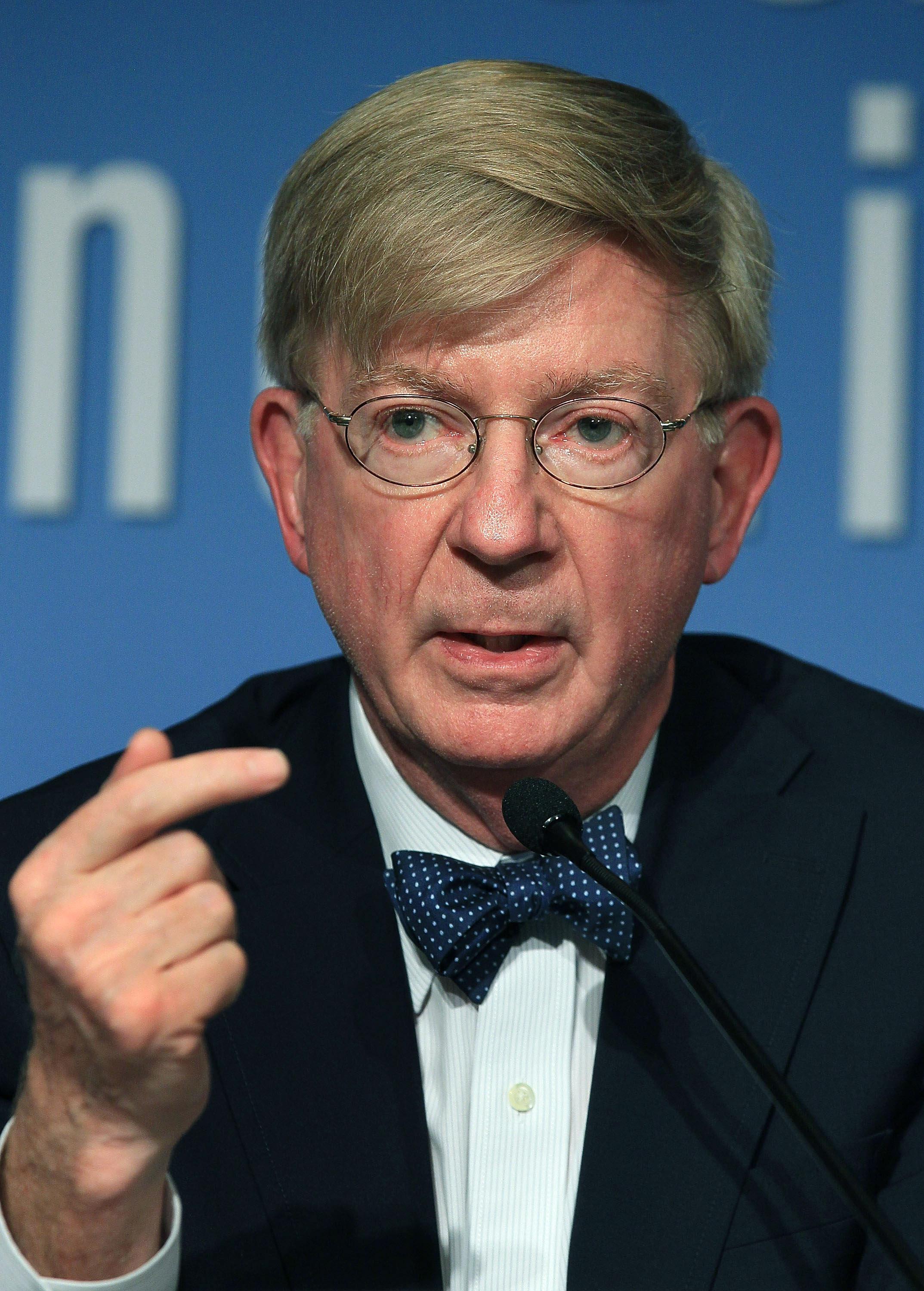A few weeks ago, Michele Norris, the co-host of NPR’s All Things Considered, stepped down from her prominent perch until after next year’s presidential election, following the announcement that her husband was signing on as an adviser with President Barack Obama’s re-election campaign. It prompted more than a few feminist commentators to wonder if a man would be expected to do the same should a similar conflict arise.
We now have our answer. Columnist and media pundit George Will can continue to cover the 2012 election despite the fact it has been revealed that wife Mari Maseng is advising contender Rick Perry after getting turned down for a position with Mitt Romney’s organization. Will has since written about Romney in terms that can best be described as virulent, claiming, among other things, that if Romney is the Republican nominee, he could take the entire party down with him.
Disclosure, which was not enough for Norris, is apparently just fine for Will, who blames “immature” members of Romney’s campaign for making a stink about something “mature professionals” should be able to handle with ease. Robin Marty, writing for Care2, immediately called a foul. “Could it be there’s a general assumption that although a husband might be able to force a wife into positive coverage for his candidate, a wife doesn’t have the same sort of influence over her husband?”
Norris is, after all, simply the latest woman in media to take a professional hit for her spouse. In September, Pulitzer Prize-winning journalist and commentator Connie Schultz, wife of Ohio Sen. Sherrod Brown, quit her long-held job at the Cleveland Plain Dealer following a brouhaha over her coverage of a Tea Party event where a possible Republican candidate opposing her husband in his next re-election campaign appeared. Earlier in the year, ABC News ruled that Claire Shipman, its senior national correspondent, would no longer cover the Obama administration because husband Jim Carney had been named White House press secretary.
A few years ago, I co-wrote a book on office romance and I still do a fair number of radio interviews on the topic. As a rule, people don’t seem to mind much if their co-workers are personally involved with one another—with one caveat. If someone is seen as potentially gaining an advantage from the relationship, all bets are off. Over the years, I’ve listened as callers have ranted about colleagues romantically entwined with bosses, suppliers, clients, and others for whom the phrase “conflict of interest” might well have been invented. It doesn’t seem to matter to the observers that nothing untoward might be going on. That someone could be benefitting unfairly seems to be enough to cause rage.
This anger carries over to the greater world. As I write, blogs, Facebook and Twitter are lighting up with commentators begging Clarence Thomas to recuse himself from the upcoming Supreme Court arguments over President Obama’s health care law because his wife Virginia has ties to conservative groups opposing the legislation. One might argue that if Clarence Thomaswere Clara Thomas this wouldn’t be an issue, because she would already have recused herself. But that would to miss the point of people’s anger.
There is an increasing view among the broader public that the fix is in and that everything from media to politics to business and finance is an insider’s game. The rage this belief engenders has motivated both the Tea Party and Occupy Wall Street. Every time a George Will and Mari Maseng or Clarence and Virginia Thomas decides they are better and more ethical then what circumstances might indicate, it feeds the cynical beast.
When it comes to marital conflict of interest in the political or media world, it is not an anti-feminist position to say one spouse or the other must make compromises. What is anti-feminist is to insist that it is only a problem that should impact women. Simple disclosure is not enough. When Michele Norris stepped forward and made a decision that, in her words, “honors the integrity” of NPR, she acknowledged that appearances are important and they are important no matter what your sex. May she be a trailblazer and not just the latest poster girl for the double standard.
